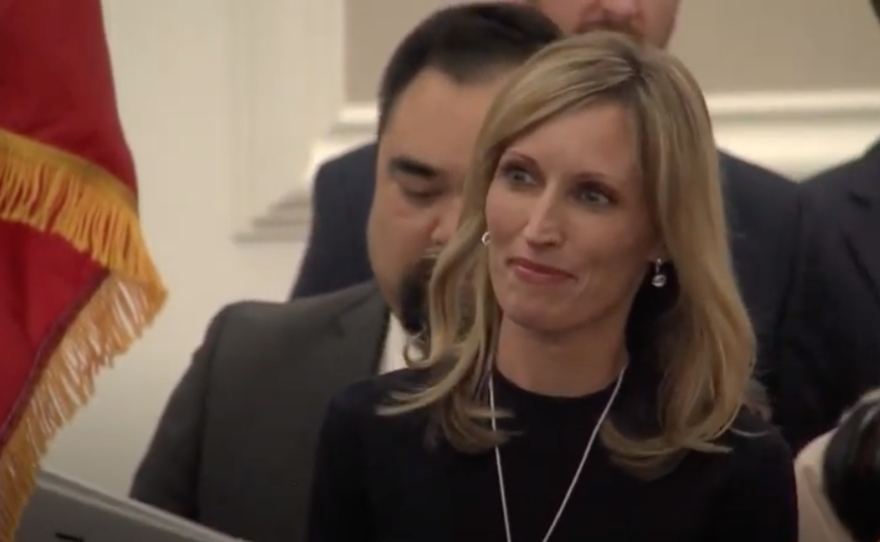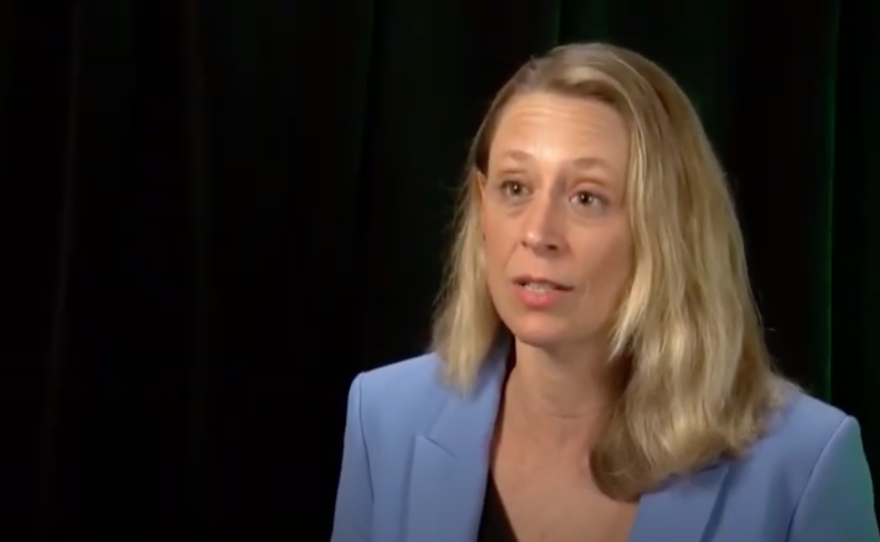From hiring political consultants to funding campaign ads, $14 million has been poured into some of San Diego County’s most notable races this year.
But more than $5 million of it hasn’t been spent by the candidates themselves.
It comes from independent expenditures that let people legally bypass maximum contribution limits by donating to political committees that support — or oppose — a candidate.
“Like them or not, you’re stuck with them,” said Gary Jacobson, a campaign finance expert and professor emeritus at the University of California San Diego.
This type of spending is considered free speech, he said, and “anybody can do it.”
Some of the biggest political players in town use independent expenditures: labor unions like the San Diego Municipal Employees Association; business groups like the San Diego Regional Chamber of Commerce; and advocacy organizations like the Lincoln Club. Well-known business owners and developers also make these kinds of expenditures in addition to donating directly to a candidate.
An inewsource analysis found some are dishing out six-figure contributions and ramping up spending in this year’s biggest races.
Not counting independent expenditures, San Diego mayoral candidate Todd Gloria has spent $2 million in his effort to defeat Barbara Bry, who has spent nearly $2.9 million. Along with paying campaign workers, both have paid for their own TV ads and campaign flyers that are cramming voters' mailboxes.
But combined with the more than $2 million the race has seen in outside spending, Gloria surpasses Bry in total support. About $90,000 more has been spent to support his candidacy than Bry’s.

The county Board of Supervisors contests have seen an additional $3.3 million in spending thanks to outside groups. Nearly half has gone toward the race for the District 3 seat — Democrats’ first shot in decades at a board majority — as political newcomer Terra Lawson-Remer challenges Republican incumbent Kristin Gaspar.
Independent spenders are legally prohibited from coordinating with candidates’ campaigns. Sometimes that’s an advantage, Jacobson said, because the outside money often funds attack ads.
He cited a well-known quote from the late John “Terry” Dolan, a well-known conservative activist who played a prominent role in federal independent expenditure laws: “A group like ours could lie through its teeth and the candidate it helps stays clean.”
“That’s kind of the danger,” Jacobson said. “There’s nobody to hold responsible for (independent expenditures) because — in theory, anyway — the candidate isn’t responsible for them.”
In the San Diego mayor’s race, more than $660,000 has been spent by outside groups to oppose Bry’s campaign, and $140,000 has been spent opposing Gloria’s.
An ad this month slams Gloria’s track record as a state assemblymember, coupling a black-and-white photo of his face with the words, “Todd Gloria supports sex offenders.”
It criticizes his support of SB 145, which addressed long-standing LGBTQ discrimination regarding sex offender registration requirements. Gloria, who is gay, says the ad is false and perpetuates homophobic tropes.
But his opponent — Bry — isn’t responsible for it.

As required, the ad’s small print reveals the name of the group behind it: “Ad paid for by Reform California.” What’s not said is that’s a political committee headed by conservative San Diego radio host Carl DeMaio.
Outside spending targets key county supervisor race
Local races were already seeing a rise in outside spending before this year’s election.
By the end of the 2018 primary, outside groups had spent about $1.2 million on a county supervisor’s race that Democratic candidate Nathan Fletcher ultimately won.
This kind of spending has been on the rise at the national level, too. Congressional elections have seen more than $1 billion of it this year, according to the Washington, D.C.-based Campaign Finance Institute.
That’s on track to beat independent spending in 2018, which saw more than double the numbers from 2016 and was more than 20 times as much in 2008.
For this year’s election, individual donors can give up to $850 to county supervisor candidates and $1,150 to mayoral candidates. But they can contribute however much they want to independent spending groups.
Experts told inewsource that independent expenditures can boost the reach of underdog candidates or those battling for attention during a crowded election year.
But that spending also raises conflict-of-interest concerns, they said.
“As a democracy, we have an interest in not having our politicians be too dependent on anyone or a few set of donors,” said Casey Dominguez, a political science and international relations professor at the University of San Diego. “And independent spending completely upends that.”
[Read our 2018 story: “What you need to know about dark money” ]
The practice has been criticized by opponents who say unlimited spending can lead to corruption and that a “candidate might come to office potentially feeling like they owe” a big donor, said Thad Kousser, a UC San Diego political science professor.
Kousser said he isn’t personally concerned, but “as long as I’ve been looking at state elections, we’ve been having this worry about independent expenditures circumventing campaign finance laws.”
Tracking the outside spending in local races isn’t an easy task, and inewsource had to review hundreds of campaign finance reports filed since early 2019 to get a full picture.
The San Diego mayor’s contest has attracted the most outside spending: $2.2 million as of Oct. 25. Of the county supervisor races, $1.6 million has been spent on District 3.
Outside groups have spent almost $950,000 in East County’s District 2 race, which has fellow Republicans Joel Anderson and Steve Vaus running to replace longtime Republican Supervisor Dianne Jacob, who is leaving because of term limits.
The District 1 contest, which mostly covers South County, has seen $850,000 in independent spending. Both candidates, Nora Vargas and Ben Hueso are Democrats, guaranteeing that the party will gain at least one seat on the county board. One of them will replace longtime Republican Supervisor Greg Cox, who is termed out.
But the contest between Gaspar and Lawson-Remer will determine whether Democrats reach a board majority. Labor groups and political organizations make up much of its outside spending.
The district — which includes parts of San Diego as well as Del Mar, Solana Beach, Encinitas and Escondido — has nearly 40,000 more registered Democrats than Republicans.
Lawson-Remer has been helped by nearly $850,000 in outside spending. Along with her own campaign spending, that brings her financial support to nearly $1.8 million.

She’s looking to unseat Gaspar, a former Encinitas mayor elected to the county board in 2016.
Gaspar’s supporters, including the conservative-leaning Lincoln Club and a law enforcement PAC, have spent nearly $770,000 the race in independent expenditures. Roughly one-fifth of it went toward opposing Lawson-Remer.
Opponents have put nearly $510,000 toward opposing Gaspar, with one committee sponsored by labor organizations spending $480,000 in ads.
Jason Roe, a campaign consultant for Gaspar, said the independent spenders supporting the supervisor are marketing Gaspar’s crossover appeal and track record. Outside committees supporting Lawson-Remer have focused on progressive issues and rallying her base, Roe said.
“So it’s a different kind of spending,” he said. “I do think it’s been impactful, and I think both our objective and Terra’s objective will be mapped by the kind of spending.”

In a statement, Lawson-Remer said she’s proud to have support from environmentalists, nurses, firefighters and others. Gaspar’s supporters, in contrast, include developers and lobbyists, Lawson-Remer said.
Gloria outpaces Bry in outside money
Both candidates in the mayor’s race are Democrats. Bry is a La Jolla businesswoman who was elected to the San Diego City Council in 2016, and Gloria was on the City Council and briefly served as interim mayor in 2013 before being elected to the Assembly in 2016.
A mayoral poll Voice of San Diego released Tuesday shows Gloria leading Bry 36% to 32%, with a third of voters undecided. The poll’s margin of error is 4.1 percentage points.
Gloria’s backers make up what he describes as an unprecedented group — the Democratic Party, labor groups and the San Diego Regional Chamber of Commerce all have endorsed him. It’s a rarity to see those groups on the same side.

Jaymie Bradford, the chamber’s executive vice president and chief operating officer, said it endorsed Gloria after conducting an interview process with both candidates. The group has given nearly $150,000 in contributions to outside committees supporting Gloria.
“Councilmember Bry can self-fund her campaign and, in fact, gave her campaign over $400,000 this month alone,” Bradford said in an email to inewsource. “Assemblymember Gloria does not have the same personal financial capability.”
The largest government union in San Diego, the Municipal Employees Association, is one of Gloria’s top outside spenders. It gave $250,000 to an independent committee that has reported spending $1 million in the mayor’s race. That includes $90,000 spent on ads supporting Gloria and another $65,000 on mailers opposing Bry in late October.
“I’m proud of the coalition that we’ve built in this campaign,” Gloria said in an interview. “Yes, some are participating in independent efforts, but ultimately it’s a reflection of a candidacy that I think is indicative of one that is going to be able to deliver upon the promises we’re making in this campaign.”
Bry’s outside support has largely come from individuals, including $35,000 from retired La Jolla resident Irwin Pfister and $30,000 from developer Tom Sudberry. The top donor of a committee supporting her is the Infrastructure PAC of the Associated General Contractors, which gave $75,000.

Bry told inewsource that voters should pay attention to who’s funding the independent spending. She said Gloria wants a long-term political career and sees the mayoral office as a steppingstone.
“He’s going to be very careful about how he treats these special interests because he’s going to need them for the next office that he’s going to run for,” Bry said. “I’m not going to need them. I want to do what’s right for our residents.”
Funding their interests
Both mayoral candidates have taken issue with each other’s response to contentious ads funded by outside spending groups.
During a KPBS/UCSD forum this month, Bry said she condemned any inaccurate information being disseminated but didn’t specifically speak to the homophobic claims in Reform California’s ads, which included a website, text messages and voicemails.
Gloria told inewsource that Bry fell short on her response.
“She had multiple opportunities to denounce homophobia, and she was incapable of doing that,” Gloria said. “That’s not too much to ask for in 2020 in San Diego. I think it’s a necessary thing for the next mayor of San Diego to say that they would stand up for all San Diegans, and she didn’t do that.”

DeMaio, Reform California’s chairman who also is gay, doubled down on the anti-Gloria ads. He said in a statement that Gloria’s support of SB 145 was “indefensible” and “he is being legitimately called out for supporting sex offenders and putting our children at risk.”
DeMaio, a Republican, is a former councilmember who failed in this year’s primary when he ran for the 50th Congressional District seat.
He said on his radio show that he isn’t endorsing anyone in the mayor’s race.
“I just can’t,” he said.
Reform California declined an interview with inewsource, instead referring to its previous statements.
Gloria said the group failed to disclose its donors when sending out text messages, a violation of campaign disclosure law. Reform California maintains the ads were legal.
Bry’s campaign has distanced itself from the ads, saying Gloria and the former councilman “had a feud long before Barbara ever thought about getting into politics.” Bry said she opposes SB 145 and would not have voted for it.
Records show after the ad was released, a complaint was filed with the state Fair Political Practices Commission, an independent agency that enforces campaign finance and ethics laws.
The commission also received a complaint regarding “Neighbors for Housing Solutions Supporting Todd Gloria for San Diego Mayor 2020,” Bry’s campaign said last week. Its largest donor is the Municipal Employees Association.
Bry’s campaign said a city resident had filed the complaint alleging the committee’s name should state that it’s an opposition PAC targeting Bry’s campaign and sponsored by labor groups.
The committee has spent more than $400,000 supporting Gloria, and nearly $640,000 opposing Bry. She has accused it of using the country’s “deep political divisions” for its benefit in opposition mailers it funded: One ad was sent to registered Democrats depicting Bry as conservative and another to Republicans painting her as too liberal.
“They don’t want me sitting across the table, negotiating what their future wages may be or what the future pension plan may be,” Bry said about the union. “They apparently really want him.”

The union did endorse Bry in her 2016 council race. Michael Zucchet, the union’s general manager, said they’ve had a good relationship with her. But he defended the ads, saying the mailers are rooted in facts and drawn from statements on Bry’s own campaign website.
He said that’s a big difference from Reform California’s “demonstrably false and not to mention despicable and dangerous” ads.
Zucchet added that the union’s endorsement this year had less to do with Bry and more with its long-standing relationship with Gloria.
“When you look at that record, we don’t have to guess,” he said. “There’s no winks, there’s no handshakes, there’s no deal. We know exactly where Todd Gloria is coming from because he’s been there.”
Jacobson, the campaign finance expert, said he thinks most people “have no idea” whether a political ad comes from a candidate or someone else.
But reading the small print on political ads can reveal which organizations want which candidates in office, he said.
“And that gives you a presumption that they want that person in office because he or she is going to do what the organization would prefer,” Jacobson said.
“They don’t work hard and spend a lot of money to elect people who they think are going to vote against their interests.”









